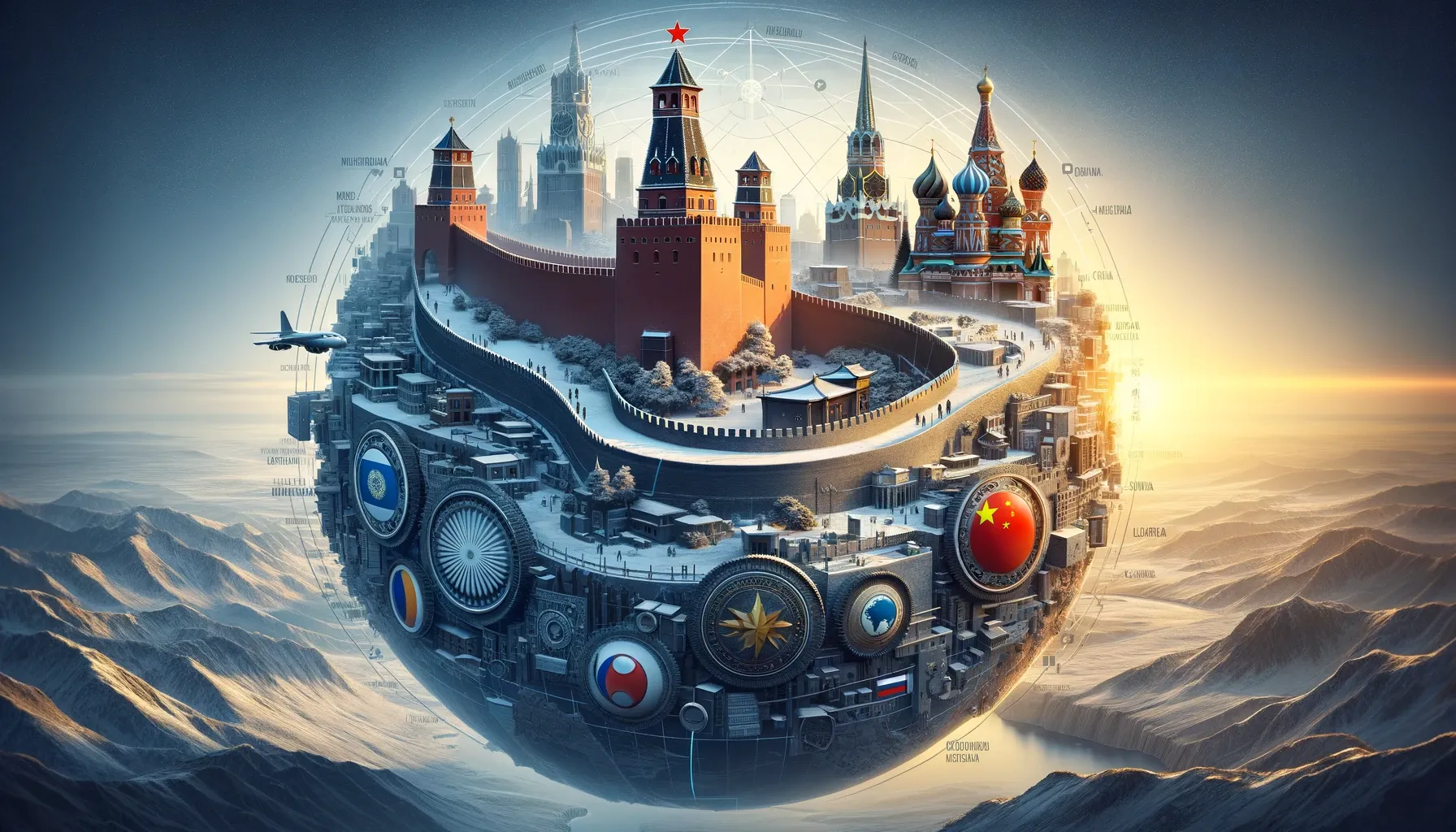Aleksandr Dugin to "Global Times": We Lost the West, But Discovered the Rest of the World
In a recent interview with the Chinese newspaper "Global Times," prominent Russian philosopher and political analyst Aleksandr Dugin shared his insights on the evolving relationship between China and Russia. The interview, timed to coincide with President Vladimir Putin's visit to China, sheds light on the broader
In a recent interview with the Chinese newspaper "Global Times," prominent Russian philosopher and political analyst Aleksandr Dugin shared his insights on the evolving relationship between China and Russia. The interview, timed to coincide with President Vladimir Putin's visit to China, sheds light on the broader geopolitical shifts and the growing multipolarity in the world.
Dugin began by emphasizing the symbolic importance of Putin's visit to China, marking his first official trip since his inauguration. According to Dugin, this visit signifies much more than diplomatic formalities—it represents a concerted effort to build a multipolar world. He explained that China, having distanced itself from the Western capitalist and liberal system, has emerged as a fully sovereign "civilizational state" and a cornerstone of the new global order.
Dugin did not mince words when discussing the decline of Western dominance. He asserted that the unipolar world order, led by the West, is a thing of the past. In its place, a multipolar world is taking shape, with China and Russia playing leading roles. Dugin pointed out that other nations and regions, including India, the Islamic world, Africa, and Latin America, are joining this "multipolar club," seeking to create a more balanced and equitable global system.
Despite the shifting power dynamics, Dugin was clear that the "multipolar club" is not inherently anti-Western. He suggested that the West could still play a constructive role in this new order if it accepts multipolarity. However, he warned that if Western countries continue to resist these changes, Russia will have no choice but to oppose their hegemonic efforts. Dugin criticized the West for frequently changing its "rules-based international order" to suit its interests, citing protectionist measures against China's rapid global market growth as an example.
Reflecting on the different paths taken by China and Russia, Dugin noted that China has adeptly navigated the challenges of globalization. By leveraging globalization to strengthen the Communist Party's power and ensure stability, China has solidified its position as a global powerhouse. In stark contrast, Russia's experience with globalization in the 1990s was marked by loss and fragmentation. The dissolution of the Warsaw Pact and NATO's expansion into Eastern Europe highlighted Russia's declining influence during that period.
Under Putin's leadership, Dugin explained, Russia has gradually restored its sovereignty and regained its footing on the global stage. While the country may be cut off from the West and its globalist economy, it has found new allies willing to collaborate. Dugin highlighted the burgeoning partnerships with China, the Islamic world, India, Africa, and Latin America. He remarked that while Russia may have lost the West, it has discovered the rest of the world, forming a network of cooperation and mutual support.
Dugin also shared his personal journey and evolving perspective on China. Initially skeptical of China's ability to maintain its socialist ideals and sovereignty amidst globalization, he changed his view after visiting the country in 2000. Today, Dugin admires China's achievements and its steadfastness in preserving its cultural and political identity. He recently authored a book titled "Yellow Dragon," dedicated to Chinese civilization, further reflecting his deep respect for modern China.
In conclusion, Aleksandr Dugin's interview with "Global Times" provides a thought-provoking analysis of the current geopolitical landscape. As the world transitions from unipolarity to multipolarity, Dugin's insights highlight the strategic realignments and philosophical shifts shaping the future. While Russia has distanced itself from the West, it has embraced a broader global community, seeking to build a multipolar world where cooperation and respect for sovereignty prevail.





